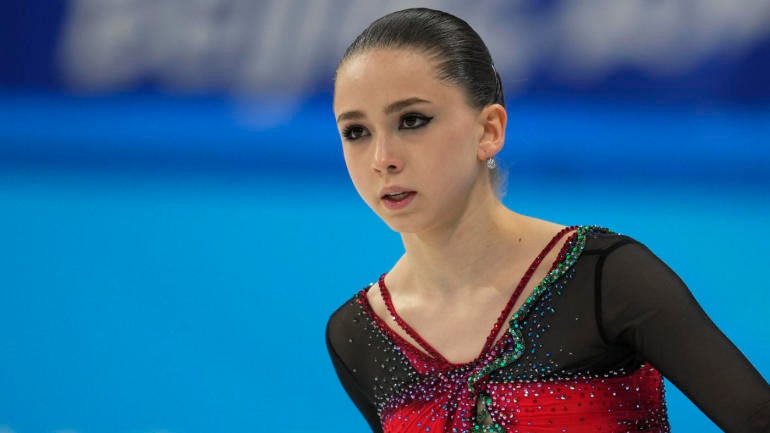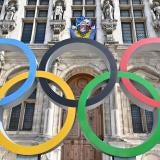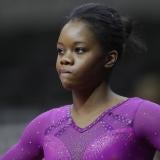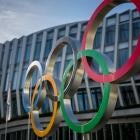
Kamila Valieva's first Olympics were controversial, to say the least. The 15-year-old Russian figure skater entered the 2022 Beijing Games as a frontrunner in her sport after dominating the 2022 European Championships. But after leading Russia to a win in the figure skating team event, she tested positive for a banned heart medication.
The Russian Anti-Doping Agency (RUSADA) provisionally suspended Valieva a day after her test results became public. A day later, though, the organization's Disciplinary Anti-Doping Committee canceled the suspension. The Court of Arbitration of Sport (CAS) officially allowed Valieva's continued participation in the Olympics on Feb. 14, a decision it made after fielding complaints from the International Olympic Committee (IOC), World Anti-Doping Agency (WADA) and International Skating Union (ISU).
Valieva posted the best score in the individual women's short program on Feb. 15 to qualify for the free skating competition on Feb. 17. But Valieva couldn't build off her strong short program performance, falling numerous times during her free skating routine to place fourth in the women's individual figure skating competition. Valieva's failure to medal allowed for a podium celebration, as one wouldn't have taken place if she finished within the top-three because of her doping scandal.
Despite her chaotic time in Beijing, Valieva received a rousing ovation from fans upon her return to Russia. It seems her fellow Russian Olympians have her back as well, as speed skater Konstantin Ivliev -- who earned a silver medal in Beijing -- told the AP "the whole plane supported her" and "spoke kind words to her because the situation is very hard."
Russian figure skater Kamila Valieva was greeted by cheering fans when she arrived at the Moscow airport.
— AP Sports (@AP_Sports) February 19, 2022
Silver medal speedskater Konstantin Ivliev says the Russian team gave its support to the 15-year-old who fell multiple times in her final skate of #Beijing2022. pic.twitter.com/m9o8urirVC
While Russia is supporting Valieva, many others expressed outrage over Valieva's continued presence in the Games. Former Team USA figure skater Kaitlyn Weaver said she's "not sure" she "bought" Valieva's excuse that she accidentally took her grandfather's heart medication. Adam Rippon, another ex-Olympic figure skater, went even further in an interview with CBS News.
“A complete slap in the face”: Former U.S. Olympic figure skater Adam Rippon condemned the decision to let Russian teen skater Kamila Valieva compete in the Beijing Olympics after her positive drug test. https://t.co/7aPaexJYZx pic.twitter.com/CU5xTDlQco
— CBS News (@CBSNews) February 16, 2022
Two-time Olympian turned figure-skating analyst Johnny Weir said he condemned the decision to allow Valieva to remain in the Olympics "with every ounce of his soul," also tweeting it was "devastating for my sport."
Former Olympians Tara Lipinski and Johnny Weir condemn the decision to allow Russian skater Kamila Valieva to compete following a failed drug test.
— The Recount (@therecount) February 14, 2022
“This is a slap in the face to the Olympic Games, to our sport, and to every athlete that’s ever competed at the Olympics clean.” pic.twitter.com/tnn8WcPzf4
Here's everything you need to know about Valieva's doping scandal, beginning with the latest updates:
Feb. 19: Valieva gets rousing ovation from fans upon her return to Russia
Valieva certainly didn't hear many cheers in Beijing, but that soon changed. Russian fans greeted Valieva with a huge applause upon her return to the country on Saturday. Ivliev, the aforementioned speed skater, said Valieva "felt better" since returning home. The 21-year-old expressed his support for the young figure skater, and it appears he isn't the only Russian Olympian in her corner.
"Yes, the whole plane supported her," Ivliev said, per the AP. "We spoke kind words to her because the situation is very hard, those things that happened to the girl. We hope that she moves forward and leaves the situation behind, no matter how hard it is."
Feb. 17: Two Russians medal in the the women's individual figure skating competition, but not Valieva
Valieva, who led the field after the short program, shockingly failed to medal in the women's individual figure skating competition. Her Russian teammates Anna Shcerbakova and Alexandra Trusova won gold and silver, respectively, while Japan's Kaori Sakamoto took home bronze. Valieva fell numerous times during her free skating routine, earning a score of 141.93. Because Valieva didn't medal, the winners were given a podium celebration. No podium celebration would've taken place if Valieva finished within the top-three because of her doping scandal.
Feb. 15: Valieva impresses in women's short program, two more heart medications revealed
The drama surrounding Valieva didn't affect her performance. Valieva recorded a field-leading score of 82.16 in the women's short program, advancing her to the free skating competition on Feb. 17. Shcerbakova (No. 2) and Trusova (No. 4) joined her in the top five. Valieva was one of 25 skaters to advance, a group that normally would've been 24 but expanded because of her doping scandal.
That same day, The New York Times revealed Valieva's drug test contained two additional heart medications: Hypoxen and L-carnitine. Those two drugs – unlike trimetazidine, the other heart medication she tested positive for – are not banned by the WADA, and Valieva reportedly listed them on a doping control form.
United States Anti-Doping Agency chief executive Travis Tygart said the "trifecta of substances" Valeiva took "seem to be aimed at increasing endurance, reducing fatigue and promoting greater efficiency in using oxygen." Valieva's mother said her daughter used Hypoxen for heart "variations," and Valieva claims she accidentally ingested her grandfather's trimetazidine.
Feb. 14, 2022: CAS lifts Valieva's suspension
The IOC, WADA and ISU all challenged the decision to cancel Valieva's suspension in the CAS. The CAS, however, decided to allow Valieva's continued participation in the 2022 Olympics.
Feb. 9. 2022: Valieva's suspension canceled
Just a day after the RUSADA provisionally suspended Valieva, the organization's Disciplinary Anti-Doping Committee canceled the suspension. The decision sparked complaints from the IOC, WADA and ISU, leading to a hearing in the CAS.
Feb. 8. 2022: RUSADA suspends Valieva, medal ceremony postponed
The RUSADA announced it finally received Valieva's drug test, claiming the delay stemmed from a wave of COVID-19, and provisionally suspended her. By rule, the suspension would keep Valieva from participating in any further 2022 Olympics events. Valieva reportedly tested positive for trimetazidine, a heart medication banned in and out of competition by the WADA.
Shortly after, the IOC postponed the figure skating team event's medal ceremony. IOC spokesperson Mark Adams said "legal issues" were the reason for the delay while adding "everyone is doing absolutely everything that the situation can be resolved as soon as possible." The postponement kept Russia, the U.S. and Japan from immediately collecting their respective gold, silver and bronze medals.
Feb. 7: Valieva leads Russia to gold, drug test comes back abnormal
Valieva helped Russia cruise to gold in the figure skating team event in her very first Olympics. The 15-year-old became the first woman to land a quadruple jump in the Olympics, and she made the jump twice. The two quads and a triple axel – another challenging jump – earned Valieva a score of 90.18, over 15 points above the second-place finisher: Japan's Wakaba Higuchi. After the win, Valieva said "this is a fantastic feeling" in Russian.
The fantastic feeling likely didn't last long. Later that day, the WADA announced it found an adverse analytical finding in the drug sample Valieva submitted 44 days prior.
Feb. 1, 2022: Russian figure skating team, Valieva arrive in Beijing
Valieva and the Russian figure skating team, excluding ice dancers Alexandra Stepanova and Ivan Bukin, reportedly landed in Beijing at 12:20 p.m. local time. The team then awaited results from their COVID-19 tests while getting situated in Beijing's Olympic Village. Just three days later, the Games began.
January 15, 2022: Valieva wins 2022 European Championships
In a preview of her eventual Olympic win, Valieva dominated the 2022 European Championships in Tallinn, Estonia. Valieva shattered her own world record in the short program with a score of 90.45, the first ever 90-plus outing for a female figure skater under the current scoring system. The win made Valieva, who also holds world records in free skate (185.29) and combined total (272.71), the clear favorite for the women's singles event in Beijing 2022.
Dec. 25, 2021: Drug sample taken from Valieva
With more than a month left until the Olympics, Valieva took a urine test at the 2022 Russian Figure Skating Championships in Saint Petersburg, Russia. The sample was sent to a WADA-accredited laboratory in Stockholm, Sweden because the RUSADA's lab is suspended. The RUSADA claimed the lab promised to prioritize Valieva's sample ahead of the Olympics, but the lab denied making such a promise.





















